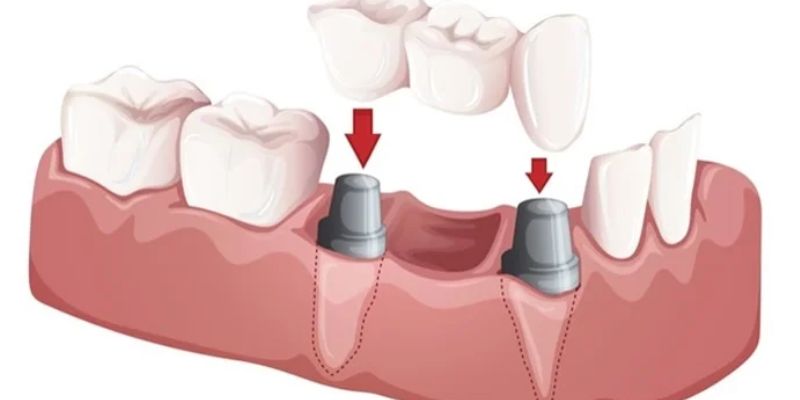Unveiling the Mystery: 13 Little-Known Facts About Chronic Pain
2023-10-27 08:00:00 By Madison Evans
Are you struggling with chronic pain? Do you feel like no one else understands the struggles you’re facing? You’re not alone. In fact, it has been estimated that approximately 20 percent of adults suffer from chronic pain in some form or another. It’s a pervasive issue and most people will experience it at least once in their life. Unfortunately, there is still so much mystery surrounding chronic pain. To lift the veil on this mysterious ailment, today we’ll be taking an in-depth look at thirteen little-known facts about chronic pain which can help shed light onto your individual struggles – understanding the ‘why’ behind your strain is often the first step to finding relief!
1. Chronic pain affects more than 25 million adults in the United States.
Chronic pain is a serious health issue that can affect anyone at any age. According to the National Institute of Health, chronic pain affects over 100 million American adults — that’s one in four people! While it’s estimated that 11% of children also suffer from chronic pain, adults are more likely to experience it.
2. Chronic pain can have a major impact on quality of life

Chronic pain is often associated with depression and anxiety, which can significantly reduce an individual’s quality of life. Additionally, chronic pain can lead to increased stress levels due to the constant discomfort and disruption to daily activities. This can lead to an increased risk of developing other health issues such as heart disease, diabetes, and arthritis.
3. Chronic pain is often linked to damaged nerves.
Damage or inflammation to the nerves can cause chronic pain; this is known as neuropathic pain. Additionally, chronic muscle and joint pain can be caused by injury or overuse of muscles and joints.
4. There are a variety of treatments available for chronic pain.
Treatments for chronic pain range from medications to physical therapy. In more severe cases, surgery may be necessary to repair damaged nerves or remove tissue that is causing the pain. Additionally, alternative therapies such as acupuncture, massage therapy, and psychotherapy can provide relief to those suffering from chronic pain.
5. Some medications can worsen the effects of chronic pain.
Certain medications can increase sensitivity to pain, making it even more difficult to manage symptoms. Nonsteroidal anti-inflammatory drugs (NSAIDs) such as ibuprofen and naproxen have been found to worsen the effects of chronic pain, while opioid medications can lead to physical dependence.
6. Chronic pain can be difficult to diagnose.
Chronic pain is often hard to diagnose as there is no single test that can identify it. A combination of medical history, lifestyle factors, and physical examinations are typically used to diagnose chronic pain. Additionally, imaging tests such as x-rays and MRI scans may be ordered in order to rule out other potential causes.
7. Certain lifestyle changes can help managing chronic pain.

Making simple lifestyle modifications such as reducing stress, eating a healthy diet, and getting regular exercise can help alleviate chronic pain symptoms. Additionally, avoiding activities that aggravate the pain and finding ways to relax can help improve quality of life.
8. Regular massage therapy can be beneficial for chronic pain.
Massage therapy has been found to reduce inflammation and muscle tension, which can help alleviate chronic pain. Additionally, it can improve circulation and trigger the release of endorphins, which are natural painkillers produced by the body. Massage therapy may also help reduce stress levels and boost overall mood.
9. Chronic pain can interfere with sleep quality.
Chronic pain can make it difficult to get a good night’s rest, which can worsen the effects of chronic pain. Additionally, sleep deprivation can lead to fatigue, depression, and anxiety — all of which can contribute to increased pain levels.
10. Mindfulness techniques are effective for managing chronic pain.
Mindfulness-based techniques such as meditation, yoga, and breathing exercises can help reduce stress levels and improve overall mental health. Additionally, these techniques can also help individuals focus on the present moment rather than worrying about the future or dwelling on the past.
11. Chronic pain is often accompanied by feelings of hopelessness and despair.
It’s not uncommon for those with chronic pain to feel overwhelmed and helpless due to their constant pain levels. This can lead to feelings of depression, anxiety, and isolation as they struggle to cope with their symptoms.
12. Chronic pain can impact relationships.
Chronic pain can make it difficult for individuals to maintain relationships or pursue activities they once enjoyed. Due to the unpredictable nature of chronic pain, individuals may have difficulty planning social events or participating in recreational activities due to their symptoms.
13. Support groups can be beneficial for those with chronic pain.
Finding support and understanding from others who understand your condition can be extremely beneficial when dealing with chronic pain. Joining a local support group or online forum can help individuals feel less isolated and more empowered to manage their chronic pain.
Conclusion:
Living with chronic pain can be challenging, but it doesn’t have to mean giving up on your goals or living in despair. With the right combination of treatments and lifestyle changes, you can learn to manage your pain and regain control of your life. Remember that there is no ‘one size fits all’ approach – everyone’s experience is different, and it may take some time to find a regimen which works best for you.








